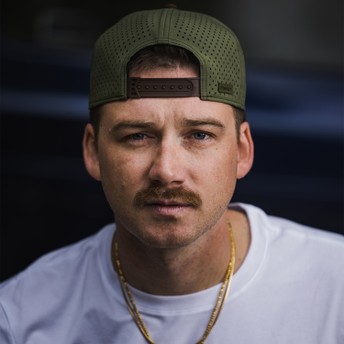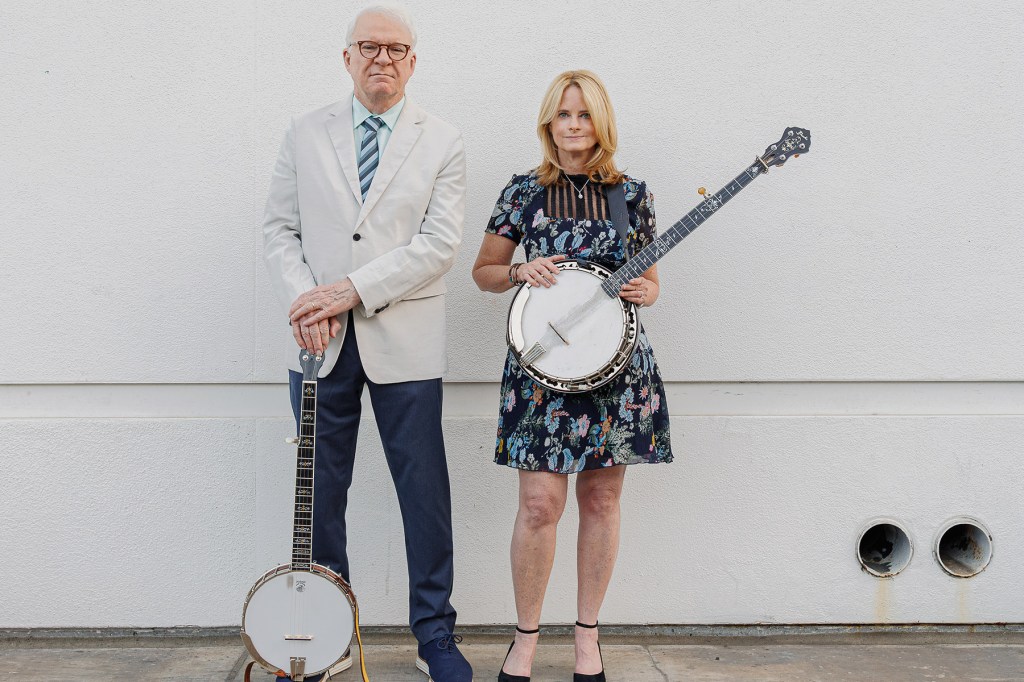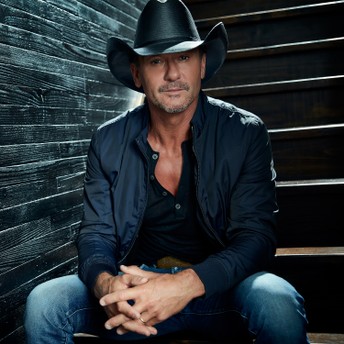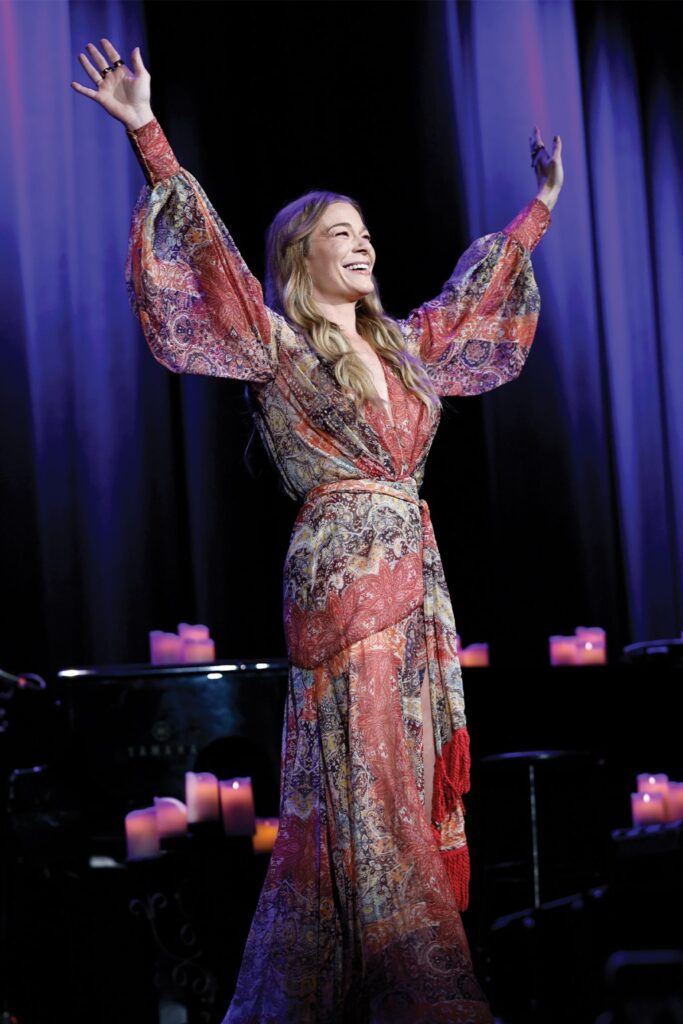genre country
Page: 12
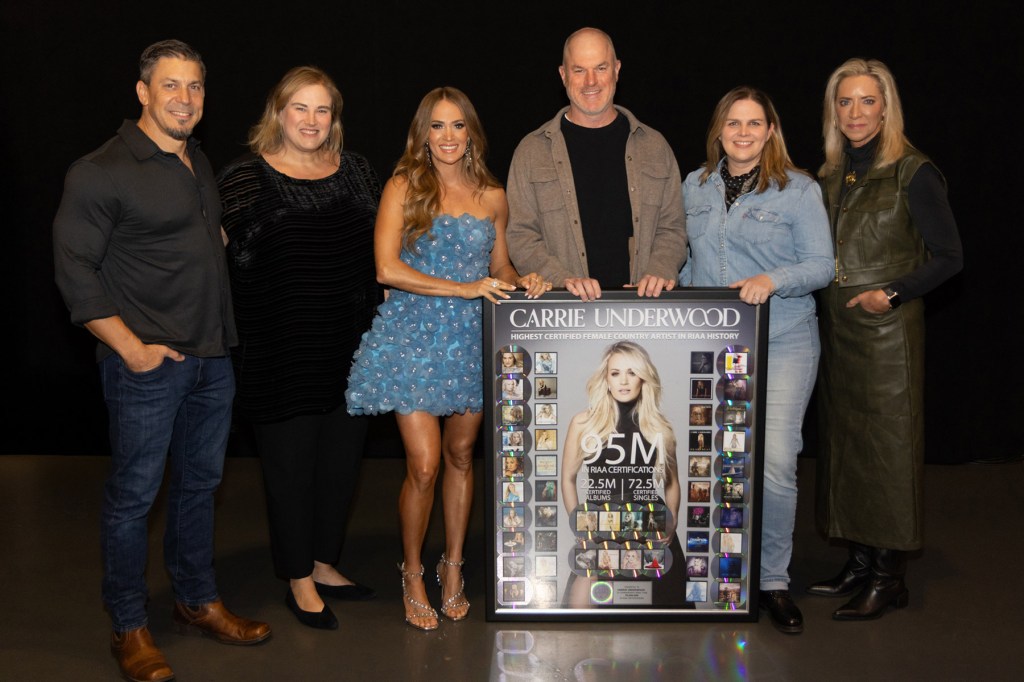
Trending on Billboard Carrie Underwood has hit a new career milestone: She’s been named the highest Recording Industry Association of America-certified female country artist of all time, with over 95 million units (22.5 million in albums and 72.5 million in singles) in the United States alone, inclusive of solo titles and collaborations. Among Underwood’s RIAA […]
Trending on Billboard
Morgan Wallen is set to bring his high-octane, hit-filled show to 11 cities in 2026, when his 21-date Still The Problem Tour 2026 launching on April 10 in Minneapolis.
Explore
See latest videos, charts and news
Wallen’s new tour will visit stadiums in Las Vegas, Indianapolis, Chicago, Philadelphia, Denver and Pittsburgh, among other stops. He will play two nights in most locations and will play three major college football stadiums, including Florida’s Ben Hill Griffin Stadium, Michigan’s Michigan Stadium and one night only at Alabama’s Saban Field at Bryant-Denny Stadium. The 19x Billboard Music Awards winner is bringing with him a top-shelf, rotating lineup of openers, including Brooks & Dunn, HARDY, Ella Langley and Thomas Rhett as direct support, Gavin Adcock, Flatland Cavalry and Hudson Westbrook as second-of-four and Jason Scott & The High Heat, Zach John King, Vincent Mason and Blake Whiten as first-of-four.
Still The Problem is inspired by Wallen’s I‘m The Problem album, which released May 16, 2025 on Big Loud/Mercury Records and spent 12 non-consecutive weeks atop the all-genre Billboard 200 albums chart, becoming Wallen’s third consecutive album to spend at least 10 weeks at the pinnacle of the Billboard 200.
Like previous Wallen tours, a portion of each ticket sold will benefit his Morgan Wallen Foundation, which supports programs for youth in sports and music. With those donations, the Morgan Wallen Foundation contributed more than $600,000 worth of instruments to schools across U.S. touring cities in 2025.
Pre-sale registration for Still The Problem Tour is open now through Nov. 6 at 10 p.m. local time at StillTheProblem.com. Public on-sale begins on Friday, Nov. 7 at 10 a.m. local time.
See the full list of Wallen’s Still The Problem Tour 2026 dates below:
April 10: Minneapolis, Minn. @ U.S. Bank Stadium w/ Thomas Rhett, Gavin Adcock, Vincent Mason
April 11: Minneapolis, Minn. @ U.S. Bank Stadium w/ HARDY, Gavin Adcock, Vincent Mason
April 18: Tuscaloosa, Ala. @ Saban Field at Bryant-Denny Stadium w/ Ella Langley, Vincent Mason, Zach John King
May 1: Las Vegas, Nev. @ Allegiant Stadium w/ Brooks & Dunn, Gavin Adcock, Vincent Mason
May 2: Las Vegas, Nev. @ Allegiant Stadium w/ Thomas Rhett, Gavin Adcock, Vincent Mason
May 8: Indianapolis, Ind. @ Lucas Oil Stadium w/ Brooks & Dunn, Hudson Westbrook, Zach John King
May 9: Indianapolis, Ind. @ Lucas Oil Stadium w/ Ella Langley, Flatland Cavalry, Zach John King
May 15: Gainesville, Fla. @ Ben Hill Griffin Stadium w/ Thomas Rhett, Gavin Adcock, Zach John King
May 16: Gainesville, Fla. @ Ben Hill Griffin Stadium w/ Ella Langley, Gavin Adcock, Zach John King
May 29: Denver, Colo. @ Empower Field at Mile High w/ Brooks & Dunn, Gavin Adcock, Vincent Mason
May 30: Denver, Colo. @ Empower Field at Mile High w/ Ella Langley, Gavin Adcock, Vincent Mason
June 5: Pittsburgh, Pa. @ Acrisure Stadium w/ Brooks & Dunn, Gavin Adcock, Zach John King
June 6: Pittsburgh, Pa. @ Acrisure Stadium w/ Ella Langley, Gavin Adcock, Zach John King
June 19: Chicago, Ill. @ Soldier Field w/ Brooks & Dunn, Gavin Adcock, Zach John King
June 20: Chicago, Ill. @ Soldier Field w/ Ella Langley, Gavin Adcock, Zach John King
July 17: Baltimore, Md. @ M&T Bank Stadium w/ Brooks & Dunn, Gavin Adcock, Jason Scott & The High Heat
July 18: Baltimore, Md. @ M&T Bank Stadium w/ Ella Langley, Gavin Adcock, Jason Scott & The High Heat
July 24: Ann Arbor, Mich. @ Michigan Stadium w/ Thomas Rhett, Hudson Westbrook, Blake Whiten
July 25: Ann Arbor, Mich. @ Michigan Stadium w/ HARDY, Hudson Westbrook, Blake Whiten
July 31: Philadelphia, Pa. @ Lincoln Financial Field w/ Brooks & Dunn, Hudson Westbrook, Blake Whiten
Aug. 1: Philadelphia, Pa. @ Lincoln Financial Field w/ Ella Langley, Hudson Westbrook, Blake Whiten
Billboard’s Live Music Summit will be held in Los Angeles on Nov. 3. For tickets and more information, click here.
Trending on Billboard
Steve Martin extends his prolific creative legacy with his and frequent collaborator Alison Brown’s new album, Safe, Sensible and Sane. The project debuts at No. 1 on Billboard’s Top Bluegrass Albums chart (dated Nov. 1) with 2,000 equivalent album units earned in the United States Oct. 17–23, according to Luminate.
The set, on Compass Records, marks Martin’s seventh leader on the list in as many visits, five of which have opened at No. 1. Featuring collaborations with Jackson Browne, Vince Gill and Jason Mraz, among others, the album is Brown’s second to top the chart.
Once viewed as a sideline to his film and comedy career, Martin’s music has instead become a defining pillar. Since his 2009 debut, The Crow: New Songs for the Five-String Banjo — itself a 31-week No. 1 — the creative polymath has logged 84 weeks at the summit of Bluegrass Albums, the most among male soloists. Four of those leaders reached the top 10 on Americana/Folk Albums, while five have made appearances on the all-genre Billboard 200.
But chart success is nothing new for Martin. Long before his banjo ever hit the charts, his comedy albums were already fixtures, helping define a golden era of recorded stand-up. Between 1977 and 1981, he placed four comedy albums on the Billboard 200, including two top 10s, highlighted by A Wild and Crazy Guy, which reached No. 2 in 1978. Selections from those albums, “King Tut,” “Grandmother’s Song” and “Cruel Shoes,” even cracked the Billboard Hot 100, with “King Tut” dancing to No. 17.
Martin’s momentum only grew when the stage gave way to the screen. At the height of the home-video rental boom, he logged 22 top 10s, including five No. 1s, between 1984 and 2009 on Billboard’s since-discontinued Video Rentals chart. Among those titles: enduring favorites such as Roxanne, Planes, Trains and Automobiles, Dirty Rotten Scoundrels and Father of the Bride, movies that helped cement his reputation as one of entertainment’s most versatile storytellers.
After all these years, Martin seems to be enjoying the spotlight as much as ever. He’s still out on the road on a comedy tour with Martin Short — his co-star, along with Selena Gomez, among others, on Hulu’s Only Murders in the Building (which he co-created) — and recently co-hosted the 2025 IBMA Awards in Chattanooga, Tenn., with Brown.
Safe, Sensible and Sane adds another win to a career built on timing, curiosity and the kind of joy that keeps audiences coming back, no matter the stage.
Trending on Billboard Three-time Grammy winner Tim McGraw recently told an audience that he contemplated leaving his music career behind due to health issues, according to a video shared by Fox News. Explore See latest videos, charts and news During a concert in Highland, California on Saturday (Oct. 25), McGraw candidly discussed the health issues […]
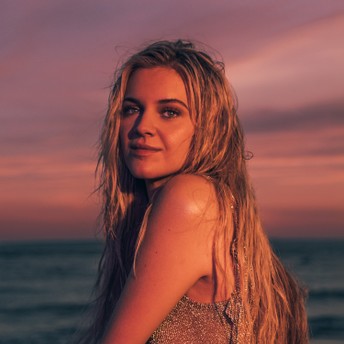
Trending on Billboard
Kelsea Ballerini posted one of her epic photo dump updates on Tuesday (Oct. 28), in one of her first personal posts since announcing that she’d broken up with Outer Banks actor Chase Stokes in early September.
Explore
See latest videos, charts and news
Though the Instagram photo reel didn’t make any reference to the split or Stokes, it provided fans an inside track on what the “Cowboys Cry Too” singer has been up to lately. “brought to you by hot dogs, porch painting, bed by 9pm, friendship, parks, kenny chesney, and lexapro,” she wrote in the caption that opened with an image of her face obscured by a Polo baseball hat as she listened to music on wired headphones.
The next slide provided the “hot dog” portion of the caption via a picnic pic of a trio of women in jeans enjoying a dog, chicken wings and fries, followed by the “porch painting” bit where she is taking a nap on a sun-flooded outdoor space with a paintbrush and palette sitting on the table.
There were also snaps of Kelsea in a white terry cloth top and matching bottoms wearing an opaque silicone sheet mask, a pic of a pumpkin painted with a tree, her seemingly hugging a black cowboy hat-wearing Chensey from on stage during a show and some snuggle time with her beloved goldendoodle Dibs.
Ballerini and Stokes began dating in 2023 and a rep confirmed to Billboard that they broke up in early September. “They’re two adults who gave it their all and tried to do everything they could to make it work, but ultimately couldn’t. It happens,” sources close to Ballerini and Stokes told People at the time.
Fans were seemingly caught off guard by the Sept. 15 news since just three days earlier, Stokes celebrated Ballerini’s 32nd birthday with a celebratory Instagram post that included several photos and videos of the couple’s private life. Stokes captioned the post, “Although you keep saying you’re not excited for 32, id say I’m lookin forward to more of this. happy birthday my love.”
The new post from Ballerini also featured a snap of her and friends painting their pumpkins at night and saying hello to a horse and ended with a silly clip of the singer emerging from the mouth of a blue hippo see-saw on a playground.

Trending on Billboard
Nobody is saying there is a direct connection, but it sure seems like whenever Brad Paisley performs the national anthem before a World Series game things tend to go long. The “When I Get Where I’m Going” singer sang the “Star-Spangled Banner” at Dodger Stadium on Monday (Oct. 27) in game three of the World Series between the Los Angeles Dodgers and the Toronto Blue Jays, there was no way to know that the contest would stretch into a record-tying 18 innings over more than six-and-a-half hours, with the Dodgers ending up with a 6-5 victory.
Explore
See latest videos, charts and news
Well, unless you’ve been paying attention and clocked that it was the fourth time Paisley had done the honors, with each one of those games going into extra innings: 11 innings for game 2 in 2017, 18 innings for game 3 in 2018 and 10 innings in game one in 2024.
Speaking to the Associated Press on Tuesday (Oct. 28), Paisley revealed whether, given his track record, he suspected Monday’s game would go long. “No, I fully, I fully expected this to actually be over in nine for maybe the first time in a while, you know,” he said, adding, “I am cursed. No, I don’t think so. … It’s wild. It’s fun. I think it’s a really fun thing.”
Paisley said that actually, instead of being a curse, he considers his extra inning run as one of those “weird fun facts that baseball excels in… It’s what Brad Pitt says in Moneyball. It’s like, ‘How can you not be romantic about baseball?’”
In fact, Paisley is so into his unique status as baseball’s extra inning man that he’s given himself a new nickname: “Mr. More Baseball.”
“It’s kind of cool to know that I sang the anthem at a couple, at the two of the four total Dodger walk-off games that ever happened. The other two were before my time anyway. … And especially the one that was 18 innings,” Paisley said, noting that around the 16th inning on Monday he thought, “‘There’s no way this is happening again.’” The day after, the singer said he saw a couple of statisticians note that he’s never performed at a World Series game that didn’t go into extra innings. “I’m available for football games, too,” he joked. “If anybody wants, you know, another quarter or two out of their team.”
Though Paisley is a West Virginia native, he said marrying wife actress Kimberly-Williams Paisley in 2003 and having a home in the Los Angeles area has made him a de facto Dodgers die-hard. “I would take the kids to these games. I got to know so many people there. … It was just an easy transition into that. I grew up going to Pirates games. My dad liked the Indians,” he said of his other go-to teams.
He noted that he’s also become friendly with a few Dodgers players, including pitcher Clayton Kershaw and infielder Justin Turner, as well as team manager Dave Roberts. “We’ve had adventures together,” Paisley said. “It’s a slow progress to where you’re addicted to something. And I got there pretty quick a while back.”
Trending on Billboard New chart moves at country show its range in full swing –– from Dan + Shay’s Taylor Swift revival to Ella Langley’s Texas grit and Morgan Wallen’s British rock spin –– proving the genre’s biggest moments can come from anywhere. Dan + Shay debut at No. 4 on Billboard’s Country Digital Song […]

Trending on Billboard
Need an early indication that a World Series game at Dodger Stadium is going to extend late into the evening? Seeing Brad Paisley step up to perform the national anthem just might be a clue.
Explore
See latest videos, charts and news
The country artist performed the U.S. national anthem at Dodger Stadium preceding a matchup between the Los Angeles Dodgers and the Toronto Blue Jays on Monday night (Oct. 27), and the game ended in extra innings — marking the fourth time a World Series game with Paisley playing the national anthem went into extra innings, according to Major League Baseball. This time, during the 18th inning, the Dodgers pulled ahead for a 6-5 victory.
Paisley now has been the anthem singer prior to both of the World Series’ longest games, which each ending in 18 innings.
Each of the four times Paisley has played the national anthem prior to a World Series Game, the game has gone into extra innings. Paisley sang the anthem last year for Game 1 of the World Series, a matchup between the Dodgers and the New York Yankees that lasted 10 innings. In 2018, he performed “The Star-Spangled Banner” before Game 3 of the World Series, prior to a game between the Dodgers and the Boston Red Sox; that game lasted 18 innings. In 2017, he sang the national anthem for the first time at the World Series, in Game 2 before a match between the Dodgers and the Houston Astros, which went for 11 innings.
Though Paisley has yet to comment on his seeming penchant of playing before extended games, Kimberly Williams-Paisley, his wife and actress, chimed in on social media, commenting on a video of the country singer playing the anthem before the game, which also happened to take place the day before his 53rd birthday on Oct. 28.
“Is it your fault it went 18 innings again? Nice of the @dodgers to win for your birthday!” Williams-Paisley wrote.
Some of Williams-Paisley’s fellow Hallmark Channel actors also chimed in, including Kris Polaha, who commented with fire emojis, and Tyler Hynes, who wrote, “Knew he was a Jays fan.”
Paisley has just added a slate of European dates to his tour for 2026, including stops in Finland, Germany, Norway, Sweden and Switzerland. He is also set to release the holiday album, Snow Globe Town, on Nov. 7.

Trending on Billboard
On this week’s episode of The Hot 100 Show, Billboard‘s chart experts break down the surge of “Mutt” and Olivia Dean’s “Man I Need” into the top 10, as well as Justin Bieber’s “Daisies” and Morgan Wallen making their way back in after a Taylor Swift-filled chart. They also share their thoughts on why they think the popularity of “Golden” and “The Fate of Ophelia” continue to hold steady.
Tetris Kelly: We have a couple of new top 10s as we find out if “Golden” can defeat Taylor Swift. Welcome back to another week of our little countdown show, where we’re figuring out if Taylor Swift, “Golden” or who’s gonna be at No. 1. But guess what? We do got some new entries this week you’re gonna want to check out, and we might have predicted them in our contenders, so let’s run it down. This is The Billboard Hot 100 top 10 for the week dated Nov. 1. Leon Thomas hits the top 10 with “Mutt.”
Leon Thomas: I think “Mutt” definitely resonated with the culture so much because it has a lot of essence of P Funk, Bootsy Collins. I feel like post pandemic, everybody got into their little toxic energy. So it’s like perfectly toxic.
Tetris Kelly: Morgan is back with “I Got Better.” Olivia Dean arrives with “Man I Need.” I feel like this is a really interesting top 10 because some of our contenders have finally made their way in. Let’s start with Leon Thomas and “Mutt.” How you guys feeling about his top 10 debut?
Delisa Shannon: Oh, wow. I’m so excited as a Nickelodeon kid — this is a really big moment for me to be able to see Leon Thomas and to see the way that he’s been, I mean, building his craft ever since he picked up that guitar on Naked Brothers Band back in the day. To see how he’s been able to craft a sound, to see it be celebrated in this way. I’m super, super proud and so excited that we’re getting to see it crack the top 10.
Xander Zellner: Also, it’s like exciting, because he has been around for years, not just like on Victorious and on Nickelodeon, but like he was producing and writing songs for Drake and Ariana Grande and SZA’s “Snooze,” like he’s been writing songs for a while, but it’s exciting to see him actually have a song of his own in the top 10 for the first time. So big moment for him.
Trevor Anderson: And the song has been around for a long time, too. I mean, that song came out in August 2024.
Keep watching for more!
Trending on Billboard
After touring for 30 years, LeAnn Rimes has learned a thing or two about maintaining her sanity on the road.
“Don’t ever fly day of show. You can’t do that anymore,” she cautions. “Even if you’re flying from Los Angeles to Oakland [Calif.], make sure you pack your outfit in your carry-on because your bag still may get f–king lost. And never do more than three shows in a row.”
Rimes has been famous ever since an impossibly big voice came out of a wee girl when she appeared on Star Search in 1991, becoming a one-week champion at the age of 8. Five years later, she sounded preternaturally mature when Curb Records released her first single, “Blue,” which garnered comparisons to Patsy Cline.
More than three decades into her career, the multiple Grammy winner, now 43, finds touring a richer experience than ever before, which has earned her the Unstoppable Award, to be presented at the Billboard Live Music Summit in Los Angeles on Nov. 3. “I love performing now more than I probably ever have because I feel like it’s on my terms,” she says. “I create this show that I want to perform, and I invite people into this space.”
LeAnn Rimes will be honored with the Unstoppable Award at Billboard‘s Live Music Summit, held Nov. 3 in Los Angeles. For tickets and more information, click here.
That’s a far cry from the early days when she moved at a much swifter pace, playing more than 500 shows over three-and-a-half years from ages 13 to 16. “No one really knew how long this was going to last,” she recalls. “And it was that frame of mind of, ‘Get it while you can.’ Then when we were done, people were like, ‘This may actually last and we just killed her!’ ”
For decades she continued touring at a less punishing rate but never took off more than six months out of the year. “It wasn’t until COVID till I ever sat my ass in one place for that long,” Rimes says, adding that the pandemic renewed her appreciation for performing. “These last several years, I’ve really thought long and hard about what I want to be putting out in the world, and it’s important to me to hopefully bring [the audience] some joy when people come to the shows.”
For Rimes, who now aims to play around 60 shows a year, touring remains “a huge part of my income. God knows the music business sucks. This is how we make money as artists.” Along the way, the live veteran has adapted to modern touring — namely, the advent of social media. “It’s just wild to see how much it’s changed,” says Rimes, who now looks out at a sea of cellphones rather than people’s faces every night. “It could easily control you. I don’t think about it too much anymore. I try to just allow it to be what it is because it’s its own beast.”
But as she experienced this summer, she can’t control everything onstage. During a show in Bow, Wash., in June, her front dental bridge fell out as she was singing “One Way Ticket.” She ran offstage, adjusted it and rejoined her band. The moment was, of course, captured on video and went viral. Months later, she calls the incident “pretty f–king funny,” laughing as she relives it. “I realized at that moment I could either quit — I’m four songs in — which I thought I was going to have to unless I was able to hold [the bridge] in. But luckily, I was able to. I’ve pretty much had everything happen to me onstage that could possibly happen, and that was probably one of the most precarious situations I’ve ever been in. I was very proud of myself that I handled it like a pro.”
After that incident and countless others, including tripping over sound monitors and even falling into the pit years ago, she has grown unflappable — and her shows remain potent. “LeAnn’s remarkable voice, her deep artistry and her connection with an audience have all continued to strengthen and grow throughout her 30-year career,” says Seth Malasky, her primary agent and senior vp at Wasserman, which books her in North America. “Her shows feel timeless yet brand-new. She’s earned her reputation as an authentic and captivating performer.”
Still, Rimes has diversified her creative output. Over the past two years, other projects have limited her to about 30 performances annually; in 2024, she was a coach on The Voice Australia and The Voice UK, and this year, she’s shooting ABC’s 9-1-1: Nashville, in which she plays the villainous, jaded backup singer Dixie.
“It’s been insane,” she says of trying to schedule live dates around her often shifting filming schedule. She was initially wary of signing on to the Ryan Murphy-created fire department procedural after watching her husband, actor Eddie Cibrian, deal with the vagaries of shooting an episodic TV series: “I have seen him go through not getting scripts until 24 hours before they’re shooting. I won’t say it’s been easy — I think at one time we were juggling seven episodes [between us] — but I think we’re getting to a point now where we’re starting to kind of get a little bit more in a groove.”
Looking ahead, next year marks the 30th anniversary of Rimes’ album Blue, which reached No. 1 on Billboard’s Top Country Albums chart in 1996 — and celebratory plans include a potential tour. “It is in the works,” Rimes says. “I know everybody’s so into nostalgia right now, which I’m loving. It’s really funny to revisit that record because I was so little. There’s about seven songs on it that I still really love that I would play.” Among all her hits, including “How Do I Live” and “Can’t Fight the Moonlight,” she says she never tires of singing the album’s title track. “There are just songs that melodically, lyrically, they’re never going to go out of style,” she says. “ ‘Blue’ is probably the one that will forever just be a classic.”
As she plots that potential Blue tour and other future outings, she’s confident — and can find humor in the unexpected. “Pretty much nothing embarrasses me onstage,” she says. “I don’t even know if my pants falling down would embarrass me. I’d be like, ‘Whatevs… you guys got more than you paid for today.’ ”
This story appears in the Oct. 25, 2025, issue of Billboard.

 State Champ Radio
State Champ Radio 